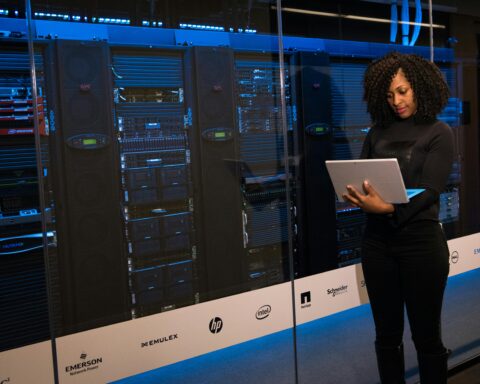Artificial intelligence is emerging as a powerful tool in the fight against cyberattacks on critical infrastructure, particularly in the water treatment sector.
A team of researchers at Virginia Tech University is harnessing AI’s potential to enhance cybersecurity. Through collaborations with DC Water and AlexRenew, a water treatment plant in Alexandria, Virginia, the team is developing innovative AI-driven solutions to protect water utilities from cyber threats.
“AI is absolutely a perfect use case for what we do. Because AI looks for patterns. It’s great for looking at patterns across large data sets, and that’s exactly what we have,” said David Roberts, chief information technology officer for AlexRenew, in a recent report from Virginia Tech University.
Cyber attacks on water infrastructure have been on the rise in recent years, threatening to disable access to the most basic resource necessary for life. The Environmental Protection Agency has repeatedly issued warnings that hackers are attempting to cripple water treatment plants across the country. With the ever-present threat, AI has the potential to help water treatment plants fend off hacking attempts.
The convergence of AI, water infrastructure and cybersecurity is being called cyberbiosecurity, explained Feras Batarseh, an associate professor in the Department of Biological Systems Engineering at Virginia Tech.
“Cyberbiosecurity is different than cybersecurity. Those biological components are very interconnected to the cyber components,” said Batarseh, who is leading the team of Virginia Tech researchers. “If you know your biological components can be compromised via your cyber backdoor, then you’ll be more worried. It means human health. It means the well-being of societies.”
Much of the research is based out of the AI and Cyber for Water and Ag (ACWA) lab in Blacksburg, Virginia, where the team operates physical pumping and tubing systems integrated with computer monitoring. This setup allows them to simulate and study cyber threats while developing AI algorithms to detect and mitigate potential risks. AlexRenew and DC Water openly share their data with the ACWA lab, recognizing that the more information the AI models can process, the better they can detect threats or anomalies.
One of the key AI applications in their work is the development of soft sensors and deep learning models, which can help water treatment plants in daily operations as well as cybersecurity. These tools predict water flow spikes and support existing hard sensors, which are costly and susceptible to corrosion. By leveraging AI, the team can provide wider visibility of data and enable plants to treat more water in an environmentally sustainable manner, reducing their dependence on chemical-based treatments.
Batarseh’s team also employs generative adversarial networks (GANs), a sophisticated AI technique, to create scenarios that simulate hacked data sets. GANs provide baselines that allow plants to identify anomalies and deploy appropriate responses rapidly. Another critical aspect of the team’s work involves using AI to integrate data from the water plant’s Supervisory Control and Data Acquisition systems. By applying AI algorithms to analyze and correlate data from various sources, the team’s tools help technicians quickly identify when any part of the system deviates from expected baselines.
“These are not machine learning algorithms, meaning they are not forecasting just based on the data. They are deep learning algorithms, meaning that they create more data and latent representations. They infer knowledge that the algorithm now has about this domain,” Batarseh said.
The AI techniques developed by Batarseh’s team aim to be effective but also cost-efficient. For small and medium-size water utilities, the high cost of implementing traditional cybersecurity measures can be a significant barrier. Smaller water systems are typically the most vulnerable to attacks. By leveraging AI, the team seeks to develop affordable solutions that help municipalities address potential vulnerabilities without breaking the bank.













